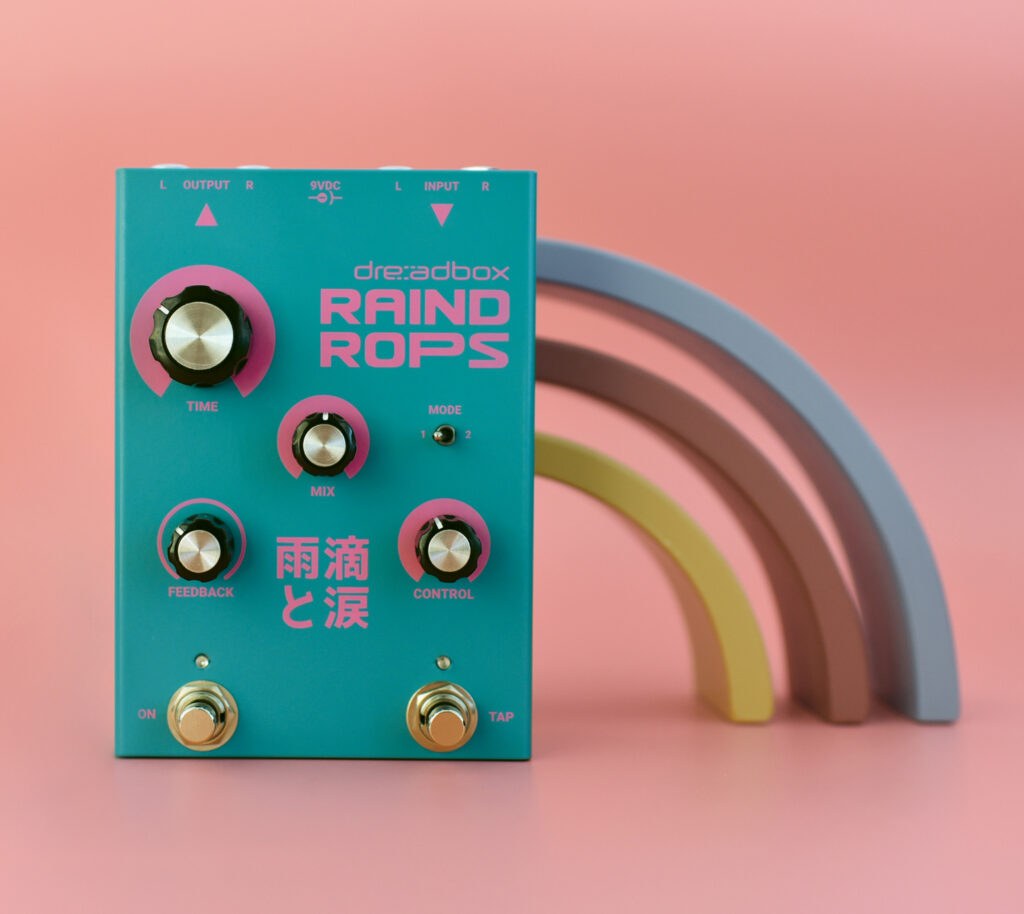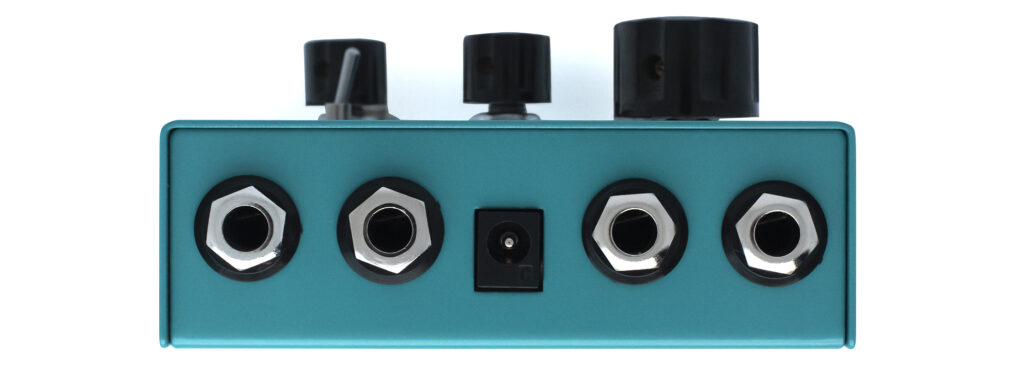Packing three algorithms and multiple echo circuits, Dreadbox’s latest delay pedal is more powerful than its simple appearance suggests. Greg Scarth puts it to the test.

Dreadbox’s effect pedal range has gone from strength to strength over the last year, with new models offering uniquely creative takes on classic effects like fuzz, compression and the Treminator ‘smashing tremolo’ launched alongside this model. The new Dreadbox Raindrops is a stereo delay pedal which appears quite simple at first glance. The main controls are standard functions: delay time, wet/dry mix, feedback and tap tempo. The hidden depths of the pedal are only hinted at by the mode toggle switch and Control knob, the functions of which change depending on which of the pedal’s three internal algorithms you select.
The implementation of the delay circuits within the pedal is much more complex than the front panel suggests. Those three algorithms are modulated delay, pitch-shifted delay and large reverb, each of which uses a different combination of multiple delay stages and integrated circuits. The net result is a pedal which can do delays all the way from 50 milliseconds to a full second. Holding down the left-hand bypass pedal allows it to double as a shift button, with the right-hand tap tempo button then toggling through the algorithms. Immediately you can hear the dramatic difference between the three modes, with the modulated delay using an LFO to modulate delay time, the pitch-shifted mode changing pitch of the wet signal after the delay, and the reverb mode adding a digital reverb after the delay circuit.

The sound of the Raindrops is impressive, as we’ve come to expect from Dreadbox, but it’s the versatility and variety of sounds which really stands out. Across the three algorithms, you can dial in everything from simple echoes through to chorus effects, freaky pitch-shifted madness and some straightforward but pleasingly lush reverbs. This is where the mode switch and Character knob come into the picture, with two adjustable parameters available for each algorithm. For modulated delays, you’ve got LFO rate and depth; in pitch-shifted mode, pitch shift depth and pitch shift amount; in reverb mode, decay time and wet/dry mix. Additionally, there are shift functions for all five controls, giving you access to input gain, a simple low-pass filter, post-feedback (after the pitch shift effect and/or filter) and a multiplier of the tap tempo divisions. All in all, there’s huge depth and variety to the control you have over the effect.

Part of the point of the Dreadbox effects range is that all the models are versatile enough to work with any instrument, from guitars and basses to synths, drum machines and samplers. That’s certainly the case here, and there’s never a sense that this is a pedal designed specifically for a certain instrument and then tweaked to try and appeal to a wider audience. On guitar and bass, it’s a vibey take on a conventional delay pedal, with the lush reverb allowing you to add background ambience. On synths, the modulated algorithm adds depth and complexity to repeated patterns like acid basslines and arpeggios. The pitch-shift mode lends itself particularly well to percussion parts, creating psychedelic effects when you dial up the feedback.

There are certain limitations to the use of Dreadbox’s standard enclosure with its small number of physical controls, although you have to look at this in the context of the unit’s price. Settings for each algorithm can be stored before powering down the unit by holding both footswitches down for three seconds, but that’s as far as memory and presets go. Likewise, perhaps it would have been nice to have more dedicated controls rather than shift functions, but it’s safe to assume the price tag would be much higher if Dreadbox had to develop a bespoke enclosure with extra knobs and switches. Raindrops is also the first pedal in this series not to feature any kind of CV inputs and outputs to interface with modular equipment but, with all that said, it’s only fair to judge the effect based on what it is, as opposed to what it isn’t. Raindrops is a characterful, versatile echo unit which can do so much more than the simple interface suggests and the price point of just over £200 feels like good value for a well built pedal with excellent sound.
Greg Scarth
More info/buy